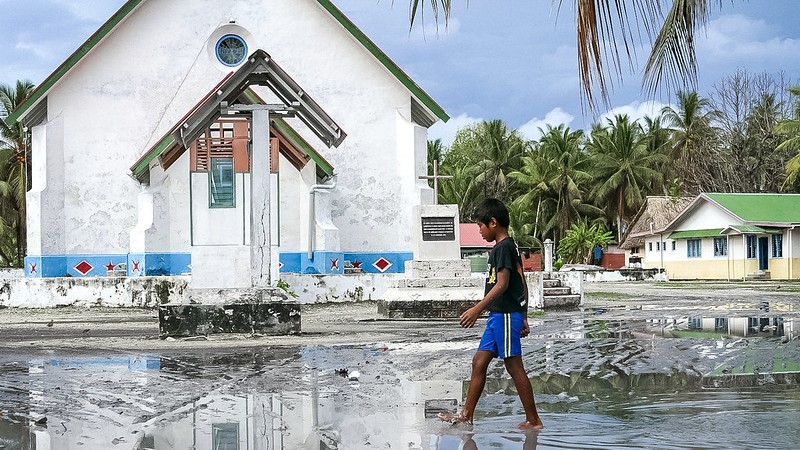Australia has announced a security guarantee to the Pacific nation of Tuvalu to respond to military aggression, protect it from climate change and boost migration in a pact aimed at countering China’s influence in the Pacific.
Under the treaty announced by Australia’s Prime Minister Anthony Albanese and his Tuvalu counterpart Kausea Natano, Australia will also vet Tuvalu’s security arrangements with other nations.
Albanese said it was Australia’s most significant agreement with a Pacific Island nation, giving “a guarantee that upon a request from Tuvalu for any military assistance based upon security issues, Australia will be there.”
Tuvalu is one of just 13 nations to maintain an official diplomatic relationship with Taiwan, as Beijing has made increasing inroads into the Pacific.
Australia’s bid to host climate talks is welcome but must be matched with action
Under the treaty, “both countries commit to mutually agree any partnership, arrangement or engagement with any other state or entity on security and defence related matters in Tuvalu,” Albanese said in a press conference on the sidelines of a Pacific leaders meeting in the Cook Islands.
An Australian government official said this requirement covered any defence, police, port, telecommunications, energy or cyber security arrangements by Tuvalu.
Although Australia has defence agreements with other Pacific Islands nations, in a region where China recently struck a security pact with Solomon Islands and is seeking to expand its policing ties and infrastructure projects, the Tuvalu treaty goes much further in positioning Australia as its primary security partner.
Migration allowance
Australia would allow 280 people a year to migrate from Tuvalu, boosting remittances back to the island nation with a population of 11,000, which is threatened by rising sea levels caused by climate change.
Natano said Tuvalu had requested the treaty to “safeguard and support each other as we face the existence of threat of climate change and geostrategic challenges”.
The annual cap on visas would ensure migration to Australia “does not cause brain drain”, he added.
“The Australia-Tuvalu Falepili union will be regarded as a significant day in which Australia acknowledged that we are part of the Pacific family,” Albanese said.
Funds will also be provided for land reclamation in Tuvalu to expand land in capital Funafuti by around 6%.
World Bank to initially host loss and damage fund under draft deal
Tuvalu, a collection of nine low-lying islands mid-way between Australia and Hawaii, is one of the world’s most at-risk countries from climate change and has long drawn international attention to the issue.
Tuvalu told the Cop27 climate summit last year Tuvalu plans to build a digital version of itself, replicating islands and landmarks and preserving its history and culture.
A plan announced by Canberra and Washington last month to fund a new undersea cable in the Pacific would connect Tuvalu, which relies on satellite, to a cable for the first time.
Australia sees deeper economic and social integration with the Pacific Islands as a way to ensure the security of the region, a government official said.
